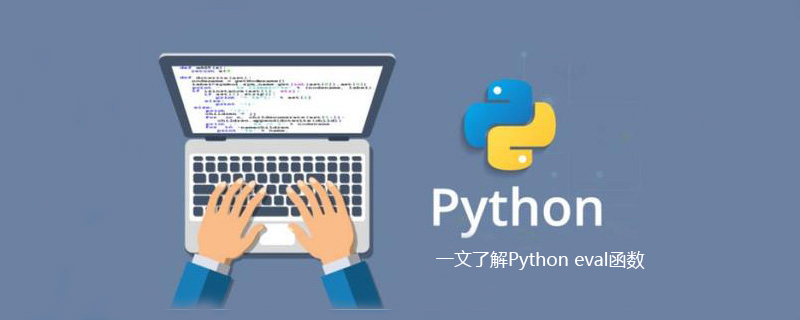
eval() 函数用来执行一个字符串表达式,并返回表达式的值。
eval(expression[, globals[, locals]])
·expression:表达式。
·globals:变量作用域,全局命名空间,如果被提供,则必须是一个字典对象。
·locals:变量作用域,局部命名空间,如果被提供,可以是任何映射对象。
>>>x = 7
>>> eval( '3 * x' )
21
>>> eval('pow(2,2)')
4
>>> n=81
>>> eval("n + 4")
85
默认作用域
在 globals 和 locals 两个参数省略的情况下,eval() 函数在当前的作用域执行:
x = 100
y = 200
def compute():
x = 10
y = 20
print(eval("x + y"))
compute()
输出结果:
30
globals 作用域
Python 的全局名字空间存储在一个叫 globals() 的字典对象中;局部名字空间存储在一个叫 locals() 的字典对象中。我们可以用 print () 来查看该函数体内的所有变量名和变量值。
x = 100 y = 200 def compute(): x = 10 y = 20 print(globals()) print(locals()) compute()
输出结果:
{'__name__': '__main__', '__doc__': None, '__package__': None, '__loader__': <_frozen_importlib_external.
SourceFileLoader object at 0x0000024AC58C7710>, '__spec__': None, '__annotations__': {}, '__builtins__': <module
'builtins' (built-in)>, '__file__': 'D:/Code/draw.py', '__cached__': None, 'x': 100, 'y': 200, 'compute':
<function compute at 0x0000024AC587C268>}
{'x': 10, 'y': 20}
从结果可以看到,globals() 的结果包含了全局变量 ‘x’: 100, ‘y’: 200 ,而 locals() 则包含的是局部变量 ‘x’: 10, ‘y’: 20。eval 函数包含 globals 参数则会使用全局作用域下的变量。
x = 100
y = 200
def compute():
x = 10
y = 20
print(eval("x + y", globals()))
compute()
输出结果:
300
locals 作用域
如果同时包含 globals 和 locals 参数,则会优先在本地作用域查找,如果本地作用域没有,才会查找全局作用域。
x = 100
def compute():
y = 20
print(eval("x + y", globals(), locals()))
compute()
输出结果:
120
字符串转换
字符串转换成列表
s = "[[1,2], [3,4], [5,6]]" print(type(s)) lst = eval(s) print(type(lst)) print(lst)
输出结果:
<class 'str'> <class 'list'> [[1, 2], [3, 4], [5, 6]]
字符串转换成字典
s = "{'math': 90, 'chinese': 100}"
print(type(s))
dic = eval(s)
print(type(dic))
print(dic)
输出结果:
<class 'str'>
<class 'dict'>
{'math': 90, 'chinese': 100}
字符串转换成元组
s = "([1,2], [3,4], [5,6])" print(type(s)) tup = eval(s) print(type(tup)) print(tup)
输出结果:
<class 'str'> <class 'tuple'> ([1, 2], [3, 4], [5, 6])
需要注意的地方
eval() 函数有安全性问题,比如用户恶意输入就会获得当前目录文件。
eval("__import__('os').system('dir')")
甚至查看目录下的所有文件的内容:
eval(open(‘filename’).read())
怎么避免安全问题?
·自行写检查函数;
·使用 ast.literal_eval。
神龙|纯净稳定代理IP免费测试>>>>>>>>天启|企业级代理IP免费测试>>>>>>>>IPIPGO|全球住宅代理IP免费测试





